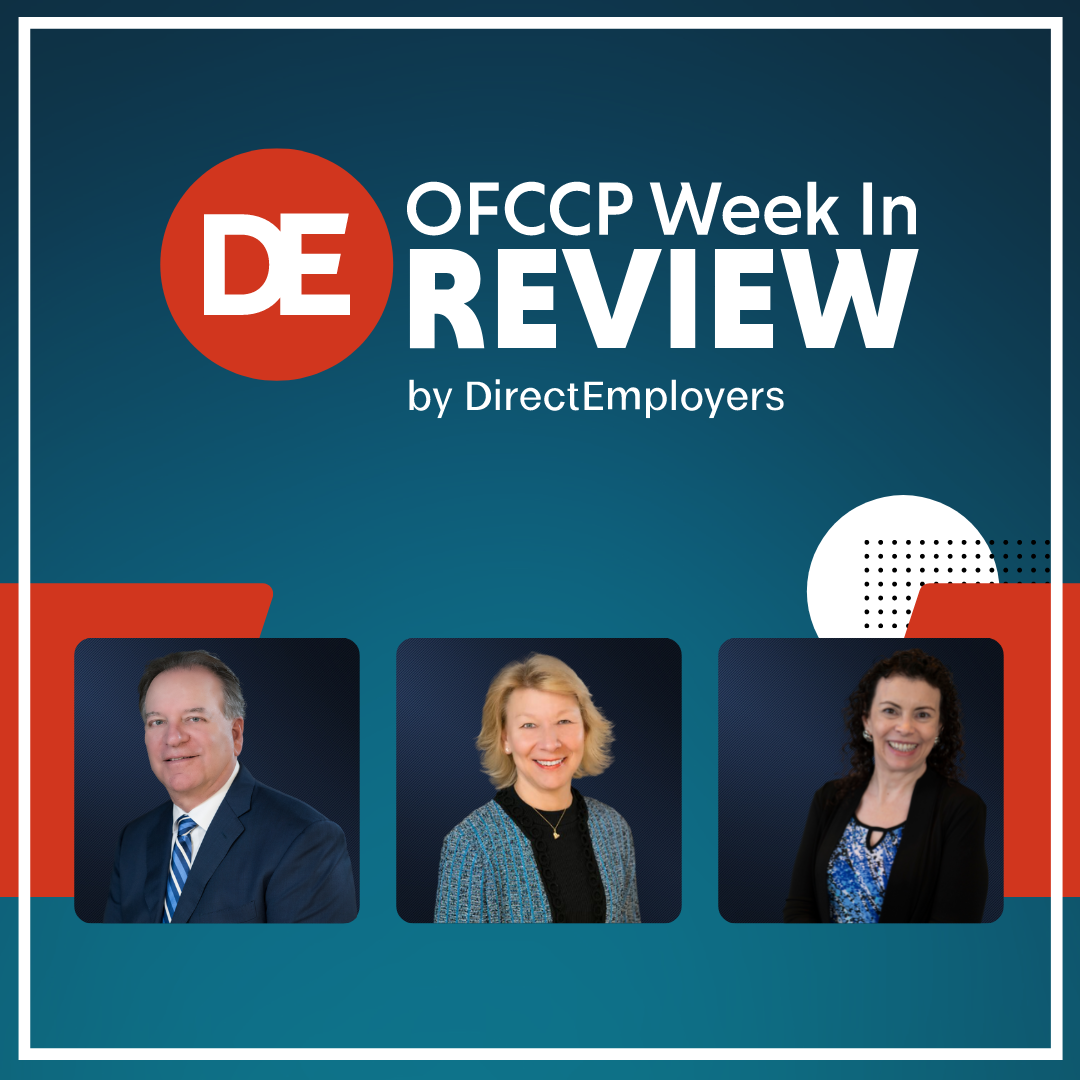
- Federal District Court Judge In Tennessee Blocked Enforcement Of Controversial EEOC & DOE Guidance Documents On Bostock
- AbilityOne Commission Published Final Rule Barring Nonprofits From Subminimum Pay On Its Contracts
- OFCCP Enforcement Statistics Continue To Spiral Down To New Modern Lows
- Wage And Hour Division Announced 60-day Comment Period On Its Unchanged Paid Sick Leave Recordkeeping Requirements For Federal Contractors
- Census Bureau announced ACS 1-year estimates will be released on September 15, 2022
- NLRB and FTC Signed New Partnership Agreement To Focus on “Anticompetitive and Unfair Labor Practices”
- Looking Ahead: Upcoming Date Reminders
Friday, July 15, 2022: Federal District Court Judge In Tennessee Blocked Enforcement Of Controversial EEOC & DOE Guidance Documents On Bostock
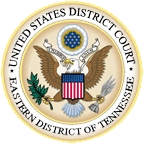
A preliminary injunction is a common tool allowed under federal court procedural rules in which a court “enjoins” (i.e., stops) some action from happening for a stated period. The preliminary injunction here will remain in effect pending the final resolution of this matter, or until further orders from this Court, the United States Court of Appeals for the Sixth Circuit (Cincinnati), or the Supreme Court of the United States.
The district court’s preliminary injunction covers the following documents:
- the DOE’s interpretation of June 22, 2021, concluding that Title IX prohibits discrimination based on sexual orientation and gender identity;
- the DOE’s “Letter to Educators” fact sheet of June 23, 2021, regarding discrimination based on sexual orientation and gender identity, including examples of discrimination involving student use of bathrooms and participation in school sports commensurate with their gender identity; and
- a (controversial)“technical assistance document” EEOC Chair Charlotte Burrows issued on June 15, 2021, without a Commission approval vote, entitled “Protections Against Employment Discrimination Based on Sexual Orientation or Gender Identity.” (We discussed this guidance in a popular Week In Review story (discussed below (titled: “Dispute Breaks Out at EEOC Between Republican Commissioners and the Democrat Chair Over Whether the Chair May Issue Policy Guidance Without a Commission Vote: Control of Commission Policy at Stake…And the Transgender Bathroom Issues are Back!”)
The EEOC document notes that:
- prohibiting a transgender person from dressing or presenting in appearance consistent with the person’s gender identity is discriminatory under Title VII;
- employers may not deny an employee equal access to a bathroom, locker room, or shower that corresponds to the employee’s gender identity;
- intentional or repeated use of the wrong name and pronouns in reference to a transgender employee would create a hostile work environment that is discriminatory based on gender identity; and
- an employer may not use a customer or client’s preferences as justification for discriminatory action against employees who have a different sexual orientation or gender identity.
In addition to the EEOC and DOE, the defendants in the lawsuit include the Department of Justice (DOJ) and the heads of all other federal Executive Branch agencies. The states joining Tennessee in the action include Alabama, Alaska, Arizona, Arkansas, Georgia, Idaho, Indiana, Kansas, Kentucky, Louisiana, Mississippi, Montana, Nebraska, Ohio, Oklahoma, South Carolina, South Dakota, and West Virginia.
Recognizing the conflict between state and federal requirements, the court held the states had standing to pursue the case
As an initial matter, Trump Appointee Charles E. Atchley Jr. of the U.S. District Court for the Eastern District of Tennessee held that the plaintiff states had standing to bring the case. Ten of the plaintiff states identified a plausible conflict between their state laws and the federal guidance documents at issue as to certain conduct related to sexual orientation and gender identity. “[B]ecause Plaintiffs are subject to Titles VII and IX, and are thus objects of the guidance, Defendants’ guidance directly interferes with and threatens Plaintiff States’ ability to continue enforcing their state laws,” the court pointed out. Moreover, a federal enforcement action puts the plaintiff states at risk of losing substantial federal funding.
The action was also ripe for court review. Even though there were no current federal enforcement actions at issue, agency action under the APA is presumptively reviewable, Judge Atchley noted. The challenged federal documents constituted final agency actions making the case ripe for review, he concluded. Here, the plaintiff states were already suffering the alleged harm to their sovereign power to enforce their own legal code, and they “face substantial pressure to change their state laws as a result.”
“The District Court rightly recognized the federal government put Tennessee and other states in an impossible situation: choose between the threat of legal consequences including the withholding of federal funding or altering our state laws to comply,” Texas Attorney General Herbert H. Slatery III said in a statement.
The federal guidance documents went beyond the parameters of Bostock, the court found
The agencies argued that the documents at issue constituted only “Interpretive Rules,” rather than “Legislative Rules” (which have the binding force and effect of law, as though the Congress had issued a statute). When issuing a Legislative Rule, an agency must publish a notice about the proposed Rule, allow the public to comment on the Rule, and, after considering the comments, make any appropriate changes and include them in the Final Rule, the court explained.
In the “Protections Against Employment Discrimination Based on Sexual Orientation or Gender Identity” guidance, the EEOC maintains that:
“This information is not new policy. This publication in itself does not have the force and effect of law and is not meant to bind the public in any way. It is intended only to provide clarity to the public regarding existing requirements under the law.”
Yet the court saw it differently. Judge Atchley found the EEOC and DOE guidances at issue were Legislative Rules that create new rights and obligations because they “ignore the limited reach of Bostock.” In that decision, the Supreme Court only held that Title VII prohibits an employer from firing someone simply for being homosexual or transgender, Atchley wrote, adding that the Court expressly declined to address other issues that might be implicated by Title VII, such as “sex-segregated bathrooms, locker rooms, and dress codes.”
While the EEOC’s “Protections Against Employment Discrimination Based on Sexual Orientation or Gender Identity” document recognizes that Bostock “explicitly reserved some issues for future cases,” it, nevertheless, went beyond the parameters of Bostock to address other issues, the judge found. “The EEOC’s guidance identifies and creates rights for applicants and employees that have not been established by federal law, and it directs employers to comply with those obligations to avoid liability,” Judge Atchley concluded.
The DOE documents also conflicted with Title IX and its implementing regulations; the court found. Title IX expressly permits sex-separated living facilities and athletic teams, and “the Department’s guidance, specifically the Fact Sheet, appears to suggest [sex-separation in those circumstances] will be investigated as unlawful discrimination,” the judge wrote.
The agencies did not follow the APA’s notice and comment period requirements for Legislative Rules
As the documents at issue constituted Legislative Rules, they are subject to the APA’s procedural requirements, the district court concluded. Because the agencies did not follow any of the APA’s public notice and comment Rulemaking formalities, the documents at issue cannot be legally binding. Indeed, the federal agencies did not contend that they complied with the APA’s notice and comment requirements. Therefore, the court reasoned that “the public would benefit from a preliminary injunction. An injunction will ensure that the agencies are not exceeding their express authority delegated by Congress.”
It is important to note the date of the at-issue guidances: June 2021. Publication of all four guidances preceded the White House’s realization during the subsequent lawsuits challenging the Biden Administration’s numerous COVID-19 vaccination mandates that the President was not above the law, could not just lean out the window of the Oval office and shout instructions, and had to comply with the APA’s Rulemaking process when it wanted to impact the substantive rights of the regulated public. Wisdom late is better than wisdom never.
Republican Commissioners objected to the guidance and related documents at the time they were published on the EEOC’s website
We reported on the dispute between EEOC Commissioners at the time that the “Protections Against Employment Discrimination Based on Sexual Orientation or Gender Identity” guidance and related documents were published on the agency’s website.
The dispute arose because the Republican EEOC Commissioners at the time – Andrea R. Lucas, Keith E. Sonderling, and Janet Dhillon – maintained that the Bostock decision expressly reserved ruling on the bathroom and related issues and that the Commission has never voted on what Title VII requires of private sector employers as to these concerns. When the documents were published, the five-member bipartisan EEOC panel had a 3-2 Republican majority. However, EEOC Chair Charlotte Burrows published the documents unilaterally without a Commission vote. [Note: In April, President Biden nominated attorney Kalpana Kotagal to replace Janet Dhillon, whose term on the Commission expired on July 1, 2022. This nomination is still pending in the Senate and Commissioner Dhillon (formerly Chair Dillon) will be able to remain on the Commission until either the end of this calendar year or the date the Senate confirms Ms. Kotagal, if it does—whichever occurs first. Should the Senate confirm Ms. Kotagal, Democrats will then have a 3-2 majority on the Commission for the first time during the Biden Administration.]
Following the district court’s ruling, Commissioner Lucas posted a statement on her LinkedIn account praising the decision. “Although [Chair Burrows’] document carries the modest name ‘technical assistance,’ it has little to do with facilitating understanding of, or adherence to, the Bostock decision,” Ms. Lucas asserted. Similar to the district court’s ruling, Commissioner Lucas pointed out that, in Bostock, the High Court “explicitly reserved [judgment] on whether other policies or practices falling short of termination constitute impermissible sex discrimination under Title VII, as well as reserved judgment on how the Religious Freedom Restoration Act of 1993 (RFRA) and other protections for religious liberty interact with Title VII.” Nevertheless, “under the guise and cover of Bostock, the Chair purported to extend to private employers (and state government employers) several (pre-Bostock) federal sector administrative decisions relating to dress codes, use of pronouns, and access to bathrooms, locker rooms, and showers—implying that compliance with Bostock requires nationwide acquiescence to the policies and interpretations in these decisions,” Ms. Lucas wrote.
“For the EEOC to have addressed these issues properly,” she continued, “the Commission should have worked together, debated, held public meetings, and, most importantly, voted on the standards it seeks to apply to the nation’s workforce in guidance, as informed by Bostock’s holding and finalized after providing stakeholders with notice and the opportunity to comment. But that did not, and has not, occurred.”
Editor’s Note: That was Commissioner Lucas’ very genteel and diplomatic way of saying on behalf of herself and her Republican Commissioner colleagues: “We told you so”!
Thursday, July 21, 2022: AbilityOne Commission Published Final Rule Barring Nonprofits From Subminimum Pay On Its Contracts
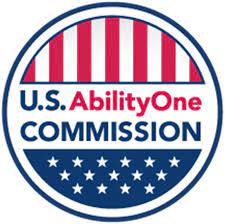
The U.S. AbilityOne Commission, a/k/a The Committee for Purchase From People Who Are Blind or Severely Disabled, published a Final Rule (87 FR 43427) barring the federal government from giving contracting preference to nonprofit employers that use FLSA Section 14(c) certificates. The Javits Wagner O’Day Act (JWOD Act) leverages the purchasing power of the federal government to create employment opportunities through the AbilityOne Program for individuals who are blind or have significant disabilities. The Commission’s Final Rule implements a new requirement that a nonprofit agency (NPA) seeking both initial and continuing qualification under the JWOD Act to participate in the AbilityOne Program must certify that it will not use FLSA Section 14(c) certificates to pay employees on its AbilityOne contracts.
Under the rule, individuals with significant disabilities and those who are blind employed by participating NPAs, and working on AbilityOne contracts, will earn at least the federal minimum wage, the applicable local or state minimum wage if higher than the federal minimum wage, or the applicable prevailing wage for contracts subject to the McNamara-O’Hara Service Contract Act, whichever is highest.
The Final Rule applies to the exercise of options on existing contracts, as well as to new contracts and extensions and renewals of contracts. However, an NPA may apply for an extension for up to 12 months to come into compliance. The Commission will grant an extension if an NPA can provide evidence for why it cannot make the wage adjustments by the effective date (due to budgetary limitations, because doing so will necessarily harm employees, or for other good cause) and if the NPA provides a corrective action plan describing the steps it intends to take to achieve compliance within the approved extension period.
Ironically, the increased pay to disabled individuals currently working under AbilityOne contracts will cause some of them to have to quit their employment because they will then earn more income than allowed for otherwise cost-free entitlement to personal care attendants.
The Commission published a proposed rule on October 12, 2021 (86 FR 56679). By the end of the comment period on December 12, 2021, the Commission received 183 total comments.
This final rule will be effective October 19, 2022.
See also, our related stories: “Thursday, June 16, 2022: USDOL’s Wage & Hour Division Issued New Guidance Limiting Subminimum Wages To Disabled And Young Employees: No Rulemaking, Yet Again” and “Monday, April 5, 2021: Bill Introduced To End Subminimum Wage for Individuals with Disabilities.”
Friday, July 22, 2022: OFCCP Enforcement Statistics Continue To Spiral Down To New Modern Lows
A few surprises as to Affirmative Action Violations Cited
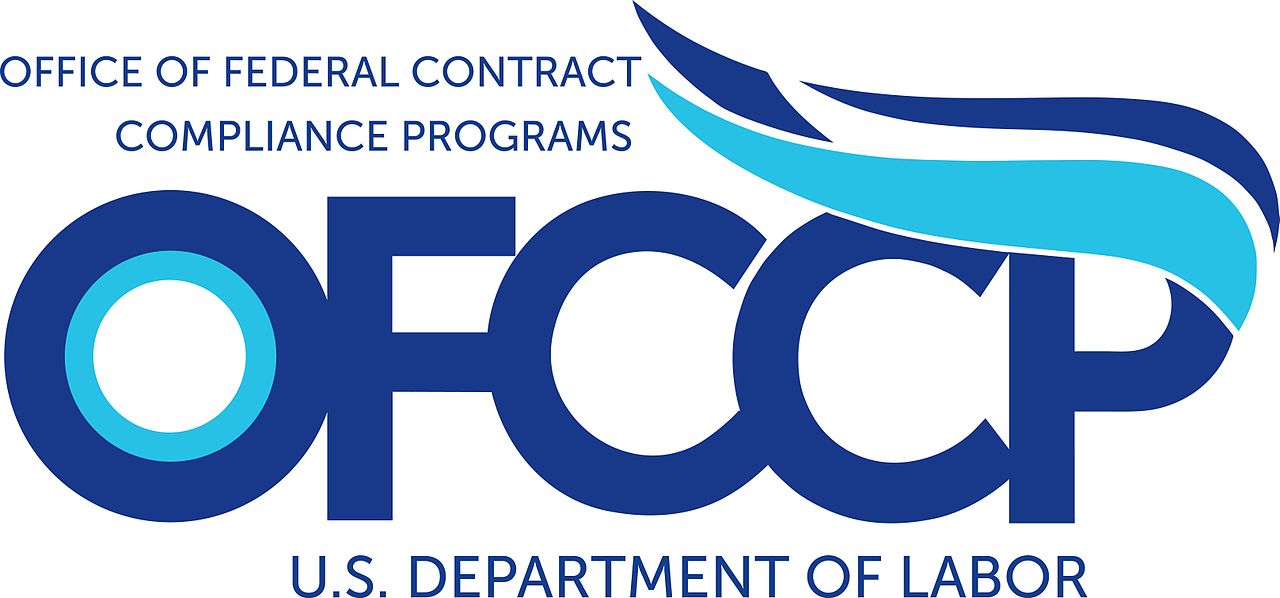
- only 14 Conciliation Agreements (slightly over one-a-week across over 50 field offices)
- alleging a total of only 27 (non-financial) affirmative action violations spread across ten different affirmative action compliance regulatory obligations
- only six financial settlements in the third quarter totaling $3,723,736.23 (bringing the total financial settlements for the year to an even ten)
- although this was OFCCP’s biggest quarter of this Fiscal Year, the quarter paled by comparison to prior years in the Obama and Trump Administrations even while coming off a devastatingly anemic second quarter during which OFCCP collected only a little over $137,000.
Through the three quarters of FY 2022 (October 1, 2021 to June 30, 2022), OFCCP has now signed a total of 76 Conciliation Agreements (i.e., about two a week over the 39-week period) alleging a total of only 237 (non-financial) affirmative action violations spread across 28 different affirmative action compliance regulatory obligations.
OFCCP’s financial settlements through three quarters now total only $5,052,202.25:
- 1st QUARTER: $1,191,000.00
- 2nd QUARTER: $ 137,466.02
- 3rd QUARTER: $3,723,736.23
Extrapolating through all four quarters for FY 2022 based on OFCCP’s pace of settlements in the first three quarters would generate slightly over $6.3 million by the end of FY 2022 (ends September 30, 2022 = 9 weeks from this writing).
Prior full-year (4 quarters) OFCCP financial settlements were:
FY 2021: $26,445,764.00
FY 2020: $35,608,368.00
FY 2019: $40,569,816.00
Failure-to-hire audits continued to be OFCCP’s “bread and butter” with only two of OFCCP’s six settlements in the third quarter alleging compensation discrimination (LinkedIn and IQVIA). OFCCP’s settlement numbers were, nonetheless, greatly aided by its relatively large ($1.8 million) settlement with LinkedIn in late April 2022 which accounted for slightly over 1/3rd of OFCCP’s backpay collection for the Fiscal Year through the end of the third quarter).
Top Five Affirmative Action Violations (with ties for 3rd and 5th places: so the top seven violations follow):
1. Required contents of AAP for Protected Veterans (41 CFR 60-300.42) [39 violations out of 247 total AA violations]
2. Mandatory Job Listing (41 CFR 60-300.5(a)2-6) [29 violations out of 247 total AA violations]
2a. This violation continues its four-year move up in the violation rankings
3a. Invitation to Self-Identify (41 CFR 60-300.42) [19 violations out of 247 total AA violations]
3b. Required contents of AAP for Individuals with a Disability (41 CFR 60-741.741.44) [19 violations out of 247 total AA violations]
5a. Failure to undertake “Good Faith Efforts” (41 CFR 60-17(c)) [13 violations out of 247 total AA violations]
5b. Recordkeeping (41 CFR 60-1.12) [13 violations out of 247 total AA violations]
– This was historically OFCCP’s perennial violation leader
In Brief
Tuesday, July 19, 2022: Wage And Hour Division Announced 60-day Comment Period On Its Unchanged Paid Sick Leave Recordkeeping Requirements For Federal Contractors
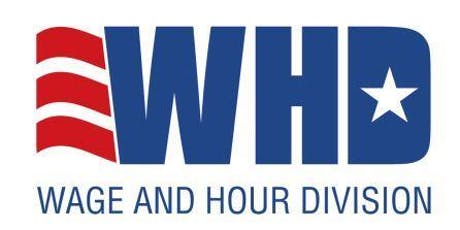
Tuesday, July 19, 2022: Census Bureau announced ACS 1-year estimates will be released on September 15, 2022
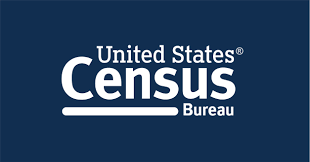
- 2021 American Community Survey: Statistics on numerous demographic, social, economic and housing characteristics (including language spoken at home, educational attainment, commute to work, employment, mortgage status and rent, as well as income, poverty and health insurance coverage) will be available. Statistics will be available for geographic areas with populations of 65,000 or more. Embargo subscribers may access these statistics beginning at 10 a.m. EDT, Tuesday, Sept. 13, for release at 12:01 a.m., Thursday, Sept. 15.
- 2021 American Community Survey Data Profiles, Detailed Tables, Comparison Profiles, Selected Population Profiles, Subject Tables, and Summary File.
- State-level 2021 health insurance coverage statistics: State uninsured rates, along with private and public health insurance coverage rates, will be included in the ACS release.
Tuesday, July 19, 2022: NLRB and FTC Signed New Partnership Agreement To Focus on “Anticompetitive and Unfair Labor Practices”
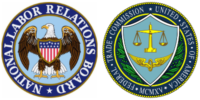
It is unclear, however, what role the NLRB intends to take as to the so-called “gig economy issues,” including “algorithmic decision-making” (presumably aimed at Amazon’s use of quantitative measures of productivity).
Looking Ahead:
Upcoming Date Reminders
- August 1, 2022, through September 30, 2022: The 2022 VETS-4212 filing cycle begins: https://www.dol.gov/agencies/vets/programs/vets4212
- Thursday, August 4, 2022: DE Webinar on Career Site Accessibility – From Hiring Trend to Recruitment Necessity
- Friday, August 12, 2022: Deadline for DEAMcon23 Speaking Proposals. Submit your proposal here: https://deamcon.org/call-for-presenters/
- Tuesday, August 16, 2022: DE Webinar on Vocational Rehabilitation: Your Untapped Resource for Diversity & Inclusion
THIS COLUMN IS MEANT TO ASSIST IN A GENERAL UNDERSTANDING OF THE CURRENT LAW AND PRACTICE RELATING TO OFCCP. IT IS NOT TO BE REGARDED AS LEGAL ADVICE. COMPANIES OR INDIVIDUALS WITH PARTICULAR QUESTIONS SHOULD SEEK ADVICE OF COUNSEL.
SUBSCRIBE.
Compliance Alerts
Compliance Tips
Week In Review (WIR)
Subscribe to receive alerts, news and updates on all things related to OFCCP compliance as it applies to federal contractors.
OFCCP Compliance Text Alerts
Get OFCCP compliance alerts on your cell phone. Text the word compliance to 55678 and confirm your subscription. Provider message and data rates may apply.

